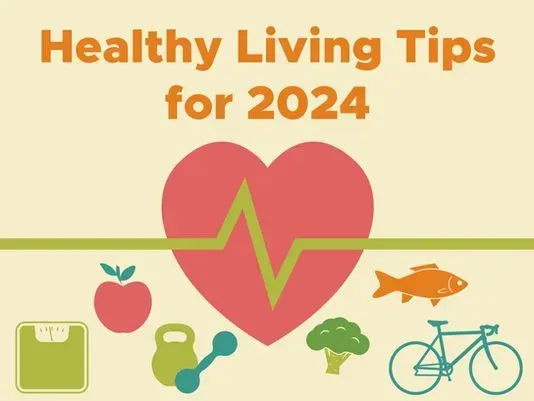Give Your Heart Some Love
Give Your Heart Some Love
February is American Heart Month and a time when all people are encouraged to focus on their cardiovascular health. Heart disease is the leading cause of death for men, women, and people of most racial and ethnic groups in the United States. People who are most at risk for heart disease are those with high blood pressure, high blood cholesterol, and those who smoke. Several other conditions and lifestyle choices can put you at a higher risk of heart disease, such as: (1)
- Diabetes
- Overweight and obesity
- Unhealthy diet
- Lack of physical activity
- Excessive alcohol use
Symptoms of Heart Disease
Heart disease may be “silent” and not diagnosed until a person experiences signs or symptoms of a heart attack, heart failure, or an arrhythmia. Symptoms may include: (2)
- Heart attack: chest pain or discomfort, upper back or neck pain, indigestion, heartburn, nausea or vomiting, extreme fatigue, upper body discomfort, dizziness, and shortness of breath
- Arrhythmia: fluttering feelings in the chest or palpitations
- Heart failure: shortness of breath, fatigue, or swelling of the feet, ankles, legs, abdomen, or neck veins
What Behaviors Increase the Risk of Heart Disease
Lifestyle choices can greatly increase your risk for heart disease. Things like:
- Eating a diet high in saturated fats, trans fat, and cholesterol has been linked to heart disease and related conditions.
- Too much sodium in your diet can raise your blood pressure which increases your risk for heart disease.
- Not getting enough physical activity can lead to heart disease and increase the risk for other conditions such as obesity, high blood pressure, high cholesterol, and diabetes.
- Drinking too much alcohol can also raise blood pressure and increase your risk for heart disease, and any tobacco use increases your risk of heart disease and heart attack.
Genetic factors likely play some role in high blood pressure, heart disease, and other related conditions as well. However, it is also likely that people with a family history of heart disease often share common environmental factors that may increase their risk. (3)
Diet and Lifestyle Recommendations for Heart Health
A healthy diet and lifestyle are the keys to preventing and managing cardiovascular disease, along with many other conditions. It doesn’t have to be hard! Even just small changes can make a big difference if you are consistent. Don't think of these changes as a temporary diet but as a change in your overall pattern. Make some of these simple steps below for long-term benefits to your overall health and your heart: (4)
Know how many calories you should be eating and drinking to maintain a healthy weight.
This will account for several factors such as your age, gender, and level of activity. A good starting point could be a calorie calculator online, but it is best to speak with your provider so they can help you take your personal factors into account.
Increase the amount and intensity of your physical activity.
You should aim for at least 150 minutes of moderate physical activity or 75 minutes of vigorous physical activity per week. Being physically active is a major step toward good heart health. Not only will it help you keep your weight under control, but it strengthens the heart muscle and wards off any artery damage. Here's how different exercises can benefit your heart health: (5)
Aerobic Exercise improves circulation which results in lowered blood pressure and heart rate. It also reduces the risk of type 2 diabetes. Ideally, you should perform some type of aerobic exercise at least 30 minutes a day, five days a week. Examples of this type of exercise include brisk walking, running, swimming, cycling, or playing tennis.
Resistance Training (Strength Work) can help reduce fat and create leaner muscle mass. Research shows that a combination of aerobic exercise and resistance work may help your good cholesterol and lower the bad. You should aim for at least two nonconsecutive days per week of strength training. Examples include working with free weights such as dumbbells or hand weights, weight machines, resistance bands, or body-weight exercises like push-ups and squats.
Stretching, Flexibility and Balance don't directly contribute to heart health but they allow you to stay flexible and free from joint pain, cramping, and other muscle issues which in turn helps you maintain your aerobic exercise and resistance training. You should stretch every day before and after every other exercise.
Eat an overall heart-healthy diet such as: (6)
- Vegetables such as leafy greens (spinach, kale, cabbage), broccoli, and carrots
- Fruits like apples, bananas, oranges, pears, grapes, and prunes
- Whole grains such as oats, brown rice, and whole-grain bread
- Protein-rich foods:
- Fish high in omega-3 fatty acids like salmon, tuna, and trout
- Lean meats such as 95% lean ground beef, pork, chicken, or turkey
- Eggs
- Nuts and seeds
- Legumes such as kidney beans, lentils, chickpeas, black-eyed peas, and lima beans
- Foods high in healthy fats:
- Olive oil
- Walnuts, almonds, and pine nuts
- Nut and seed butters
- Sesame, sunflower, pumpkin, or flax seeds
- Avocados
- Tofu
Foods and drinks to limit include processed foods, added sugars, high-sodium items, soda, and alcohol.
Live tobacco-free.
Cigarette smoking and using other tobacco products greatly increase your risk for heart disease. If you currently smoke but would like to quit, you can follow the below five steps: (7)
- Set your “Quit Day” within the next 7 days and make a pledge in front of people who will support you.
- Choose your method whether it’s “cold turkey”, or cutting down the number of cigarettes per day until you reach zero.
- Talk with your healthcare professional to decide if you’ll need medicines or other help to successfully quit.
- Make a plan for your quit day and afterward such as having healthy snacks available, keeping yourself busy with activities you enjoy, etc.
- And finally, quit tobacco on your quit day!
As always, you can and should consult a healthcare professional such as your physician or pharmacist who can also help you take the proper steps to quit for good.
Work with your healthcare team. You and your healthcare team, like your physician and pharmacist, can work together to prevent or treat any conditions that may lead to heart disease. Discuss this treatment plan regularly, and bring any questions you have to all your appointments. If you've already had a heart attack, your healthcare team will work with you to prevent another one. If your treatment plan includes medications, be sure to take any medications as directed and tell your pharmacist if you are experiencing any side effects.
Are you thinking about adding a heart healthy supplement to your daily routine and not sure where to start? Visit the pharmacy to speak with our pharmacist to get their recommendation!

Services
Quick Links
Contact Us
Mon - Fri : 9AM - 6PM
Sat - Sun : Closed


